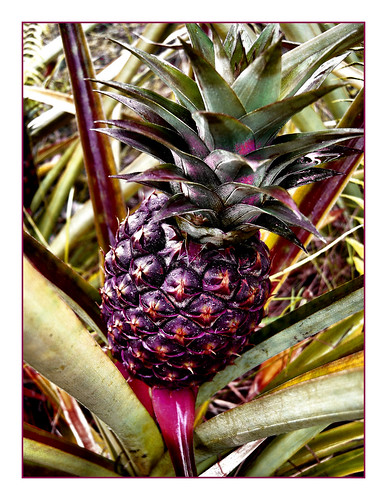Beverage to emphasize for: hunter, teacher, warrior, nomad
Neutral for: gatherer, explorer
Toxin to limit or avoid for: /
Can be reintroduced after 3-6 months in modest amounts for: /
Prime food for weight loss for: teacher
Good for everyone!
"The Hawaiian word for pineapple is halakahiki, which means “foreign fruit.” It is believed that pineapple first originated in Paraguay or Brazil. Carried aboard 15th and 16th century trade ships, pineapple was soon found growing as far away as Mexico, Australia, China and India. Christopher Columbus brought pineapples home from his travels in the “New World,” and they quickly became a gourmet fruit throughout Europe.
. The plant is a bromeliad (family Bromeliaceae), a short, herbaceous perennial with 30 or more trough-shaped and pointed leaves 30–100 cm long, surrounding a thick stem. The leaves of the Smooth Cayenne cultivar mostly lack spines except at the leaf tip, but the Spanish and Queen cultivars have large spines along the leaf margins. The fruit was named "pineapple" because of its resemblance to a pine cone. The native Tupi word for the fruit was anana, meaning "excellent fruit". This word became the source of the word ananas, which is the word for pineapple in many languages.
Pineapple contains a proteolytic enzyme bromelain, which digests food by breaking down protein. Pineapple juice can thus be used as a marinade and tenderizer for meat. The enzymes in pineapples can interfere with the preparation of some foods, such as jelly or other gelatin-based desserts. Some have claimed that pineapple has benefits for some intestinal disorders while others claim that it helps to induce childbirth when a baby is overdue. It can also be used in savory dishes to enhance digestion.
Pineapple is a good source of manganese, as well as containing significant amounts of vitamin C and Vitamin B1.. "
(text by photographer)
***
***





0 comments:
Post a Comment